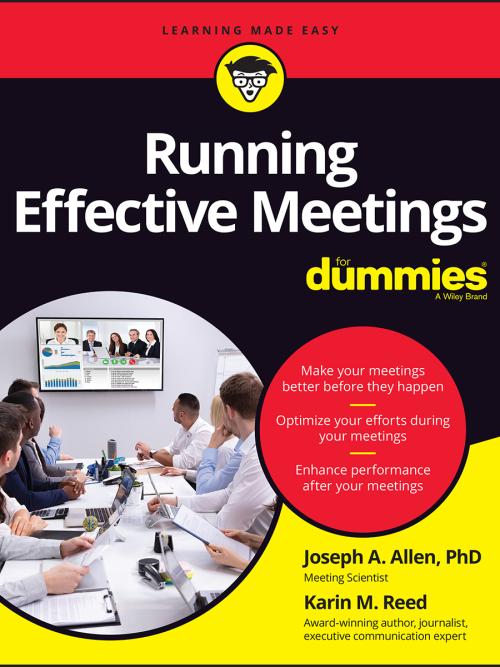It’s a scenario playing out in millions of conference rooms across the country every day: employees sneaking glances at their watches during a meeting that started late, wondering when they will be able to get back to doing their jobs as the manager drones on about a half-relevant topic with seemingly little interest in letting anyone else offer input or otherwise participate. And what’s worse, it’s only the first meeting in a day packed with them.
Recent estimates indicate more than 55 million meetings happen daily in the U.S., and findings show roughly half of meetings are rated as poor. For businesses where these bad meetings are occurring, the problem goes well beyond managers being lampooned in water-cooler jokes over their talent for putting employees to sleep. Ample evidence shows ineffective meetings reduce employee engagement, increase burnout and turnover and, ultimately, crush the bottom line.
Dr. Joseph Allen, PhD, a University of Utah psychologist, knows the plight employees – and their employers -- face better than anybody. He is the director of the Rocky Mountain Center for Occupational and Environmental Health’s Center for Meeting Effectiveness and has authored or co-authored approximately 25% of all peer-reviewed research on the topic of meeting science. His passion is understanding the ins and outs of meetings and helping organizations across the world do them better.
Now Dr. Allen’s expertise is readily available to everyone. His latest book, “Running Effective Meetings for Dummies,” offers an accessible guide that shows leaders how to turn meetings into an experience that energizes employees and adds value for teams striving to reach their goals. Even organizations with the most flawed meeting cultures can change and find success by incorporating the insight Dr. Allen has gained through studying workplace meetings for more than 15 years.
The book, published by John Wiley & Sons, Inc., was released Sept. 27 and is available at most major book retailers. It is co-authored by Karin M. Reed, an award-winning journalist and executive communication expert.
“Workplace meetings are ubiquitous in our culture and many others,” Dr. Allen says. “But how often do we actually take time to think about what makes a meeting successful or unsuccessful? For most people, the answer is never. There’s an enormous opportunity for leaders and organizations to turn what is so often a weakness into a strength that will lead to more engaged employees, a better work environment and better results.”
About Dr. Allen
Joseph A. Allen, PhD, is a professor of industrial and organizational (I/O) psychology at the University of Utah. His research focuses on three areas: the study of workplace meetings, organizational community engagement and occupational safety and health. He has more than 200 publications in academic outlets and has published several other books, including “Suddenly Virtual: Making Remote Meetings Work,” “Suddenly Hybrid: Managing the Modern Meeting,” and “The Burned Out Physician: Managing the Stress and Reducing the Errors.” He directs the Center for Meeting Effectiveness in the Rocky Mountain Center for Occupational and Environmental Health, a multi-university program partnership between the University of Utah and Weber State University. His work is available at www.joeallen.org.




 © 2026 Rocky Mountain Center for Occupational and Environmental Health
© 2026 Rocky Mountain Center for Occupational and Environmental Health